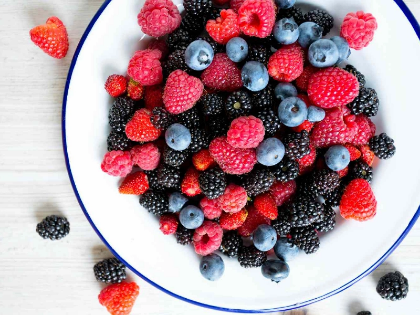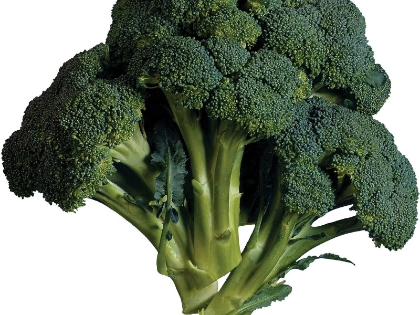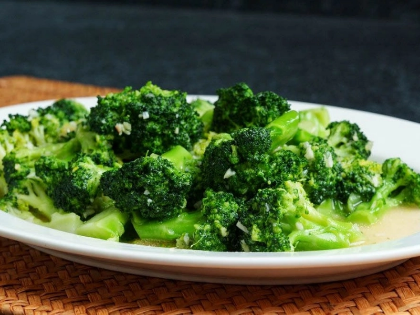Vitamin C's Function in Maintaining a Healthy Respiratory System
Ascorbic acid, another name for vitamin C, is a necessary component that may be found in a variety of fruits and vegetables. Antioxidant and immune-modulating in nature, it improves the uptake of nonheme iron from diet. When compared to a placebo, vitamin C treatment stopped the increase in the Sequential Organ Failure Assessment (SOFA), Acute Physiologic Assessment, and Chronic Health Evaluation (APACHE) scores in an animal model of sepsis.
Activity of Antioxidants
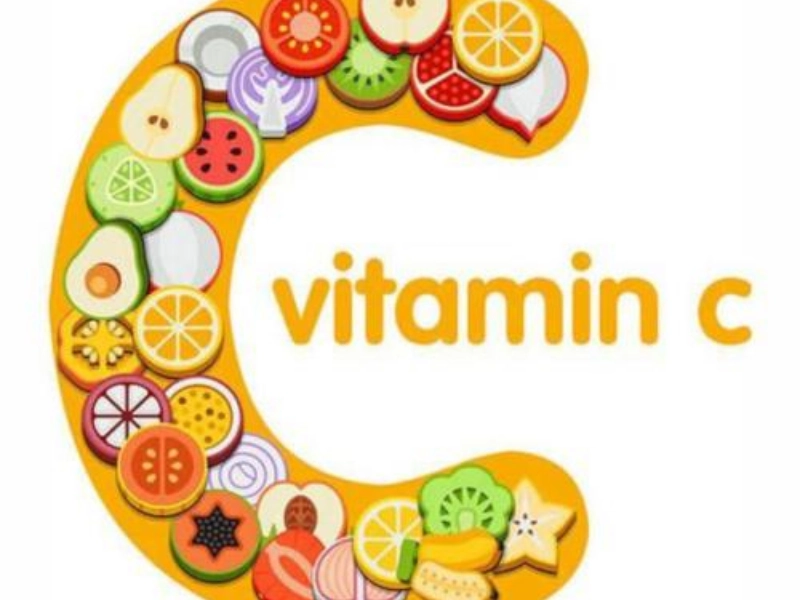
Antibody-Suppressive Action
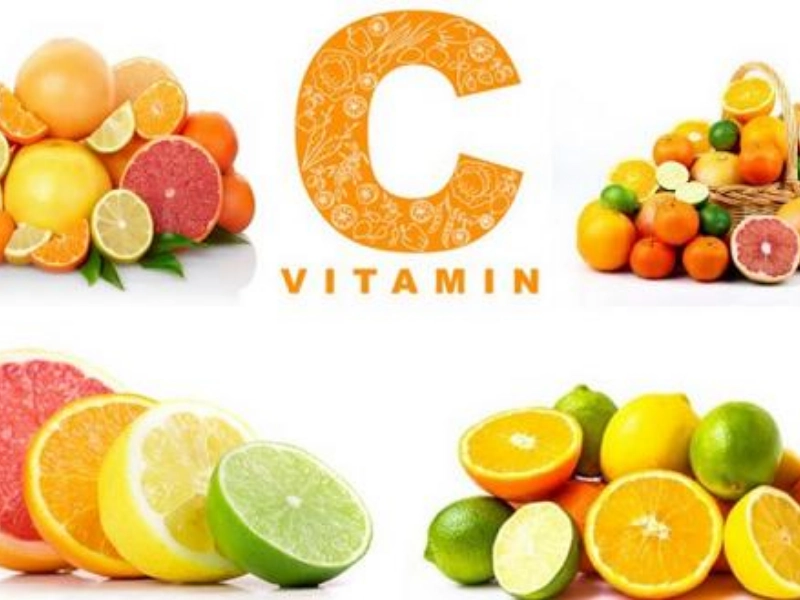 Natural antioxidants and potent reducing agents are found in vitamin C. It shields vital molecules from harm, including proteins, lipids, carbohydrates, and nucleic acids (DNA and RNA), which are produced during regular metabolism or by exposure to harmful substances or pollutants like cigarette smoke. Moreover, it takes part in the redox recycling of other significant antioxidants like vitamin E.
Research conducted both in vitro and in vivo suggests that vitamin C augments leukocyte and lymphocyte activation and fosters their growth, chemotaxis, phagocytosis, and generation of interferons (reviewed in 14). Additionally, it has been demonstrated to both increase and decrease regulatory T cell and natural killer cell activity.
Vitamin C has an antibacterial effect against specific food-borne Gramme-negative bacterial pathogens that often cause serious morbidity in human disorders (reviewed in 15). It has been demonstrated to enhance the antimicrobial properties of epigallocatechin gallate and to provide synergistic defence against infections caused by S. aureus that are resistant to several drugs.
Natural antioxidants and potent reducing agents are found in vitamin C. It shields vital molecules from harm, including proteins, lipids, carbohydrates, and nucleic acids (DNA and RNA), which are produced during regular metabolism or by exposure to harmful substances or pollutants like cigarette smoke. Moreover, it takes part in the redox recycling of other significant antioxidants like vitamin E.
Research conducted both in vitro and in vivo suggests that vitamin C augments leukocyte and lymphocyte activation and fosters their growth, chemotaxis, phagocytosis, and generation of interferons (reviewed in 14). Additionally, it has been demonstrated to both increase and decrease regulatory T cell and natural killer cell activity.
Vitamin C has an antibacterial effect against specific food-borne Gramme-negative bacterial pathogens that often cause serious morbidity in human disorders (reviewed in 15). It has been demonstrated to enhance the antimicrobial properties of epigallocatechin gallate and to provide synergistic defence against infections caused by S. aureus that are resistant to several drugs.
Reducing Inflammation
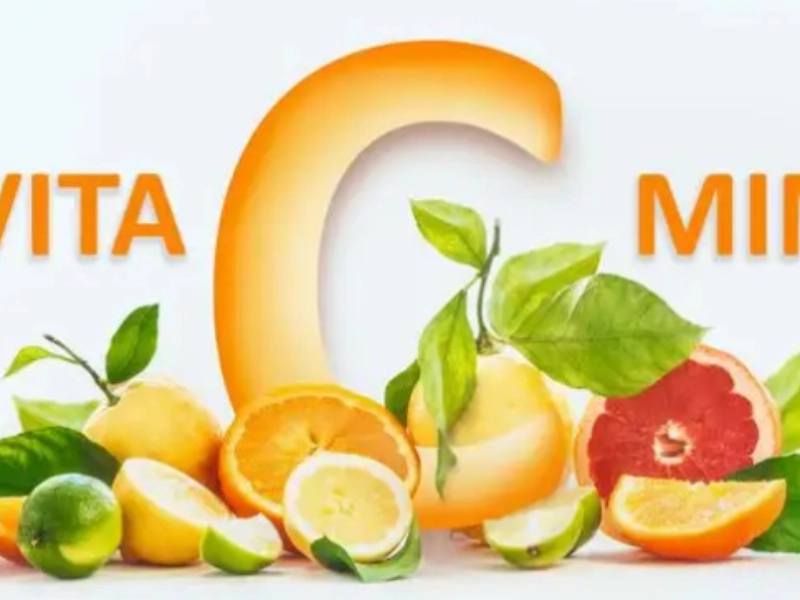 Among low-molecular-weight nutrients, vitamin C is exceptional because of its extraordinarily intricate pattern of absorption, distribution, metabolism, and excretion. Specialised sodium-dependent transporters (SVCT) that produce notable concentration gradients are used to transfer it into cells.
The partitioning of vitamin C concentrations inside cells could be a factor in its capacity to reduce inflammation. It has been demonstrated to reduce the oxidative damage brought on by some chemotherapeutic medications, cigarette smoke, and UV radiation, as well as to prevent the synthesis of inflammatory mediators in vitro.
Increased consumption of fruits and vegetables has been linked to a lower risk of cancer, according to epidemiologic research. This association may be due to the high vitamin C content of these foods. In a similar vein, prospective cohort research including more than 2,000 participants followed for 20 years discovered that those with the highest plasma vitamin C concentrations were 29% less likely than those in the lowest quartile to die from ischaemic heart disease and all causes combined. Furthermore, vitamin C increases the ability of other antioxidants to prevent oxidative damage.
Among low-molecular-weight nutrients, vitamin C is exceptional because of its extraordinarily intricate pattern of absorption, distribution, metabolism, and excretion. Specialised sodium-dependent transporters (SVCT) that produce notable concentration gradients are used to transfer it into cells.
The partitioning of vitamin C concentrations inside cells could be a factor in its capacity to reduce inflammation. It has been demonstrated to reduce the oxidative damage brought on by some chemotherapeutic medications, cigarette smoke, and UV radiation, as well as to prevent the synthesis of inflammatory mediators in vitro.
Increased consumption of fruits and vegetables has been linked to a lower risk of cancer, according to epidemiologic research. This association may be due to the high vitamin C content of these foods. In a similar vein, prospective cohort research including more than 2,000 participants followed for 20 years discovered that those with the highest plasma vitamin C concentrations were 29% less likely than those in the lowest quartile to die from ischaemic heart disease and all causes combined. Furthermore, vitamin C increases the ability of other antioxidants to prevent oxidative damage.
Heart-Related Exercise
 Water-soluble vitamin C is a necessary component of human life. Fruits and vegetables, including berries, citrus fruits, melon, tomatoes, leafy greens, broccoli, and potatoes, naturally contain it. As an antioxidant, it aids in preventing cellular damage. Additionally, it's being researched for the treatment and prevention of various malignancies. Ascorbic acid is another name for vitamin C.
Smokers typically have lower vitamin C concentrations in their plasma and leukocytes than nonsmokers, most likely as a result of higher oxidative stress. Moderate supplemental vitamin C consumption in smokers may help prevent deficiency.
Higher dietary intakes of vitamin C have been linked in epidemiological studies to a lower risk of cardiovascular disease. This relationship may be explained in part by vitamin C's anti-oxidant qualities, which can lessen low-density lipoprotein oxidative modification. Other possible explanations include vitamin C's ability to lessen inflammatory processes and improve endothelial function. On the other hand, large amounts of extra vitamin C may cause problems when interpreting certain lab results (see the section on potassium). Furthermore, people who already take blood pressure medication may see an increase in blood pressure as a result of supplementation.
Water-soluble vitamin C is a necessary component of human life. Fruits and vegetables, including berries, citrus fruits, melon, tomatoes, leafy greens, broccoli, and potatoes, naturally contain it. As an antioxidant, it aids in preventing cellular damage. Additionally, it's being researched for the treatment and prevention of various malignancies. Ascorbic acid is another name for vitamin C.
Smokers typically have lower vitamin C concentrations in their plasma and leukocytes than nonsmokers, most likely as a result of higher oxidative stress. Moderate supplemental vitamin C consumption in smokers may help prevent deficiency.
Higher dietary intakes of vitamin C have been linked in epidemiological studies to a lower risk of cardiovascular disease. This relationship may be explained in part by vitamin C's anti-oxidant qualities, which can lessen low-density lipoprotein oxidative modification. Other possible explanations include vitamin C's ability to lessen inflammatory processes and improve endothelial function. On the other hand, large amounts of extra vitamin C may cause problems when interpreting certain lab results (see the section on potassium). Furthermore, people who already take blood pressure medication may see an increase in blood pressure as a result of supplementation.


